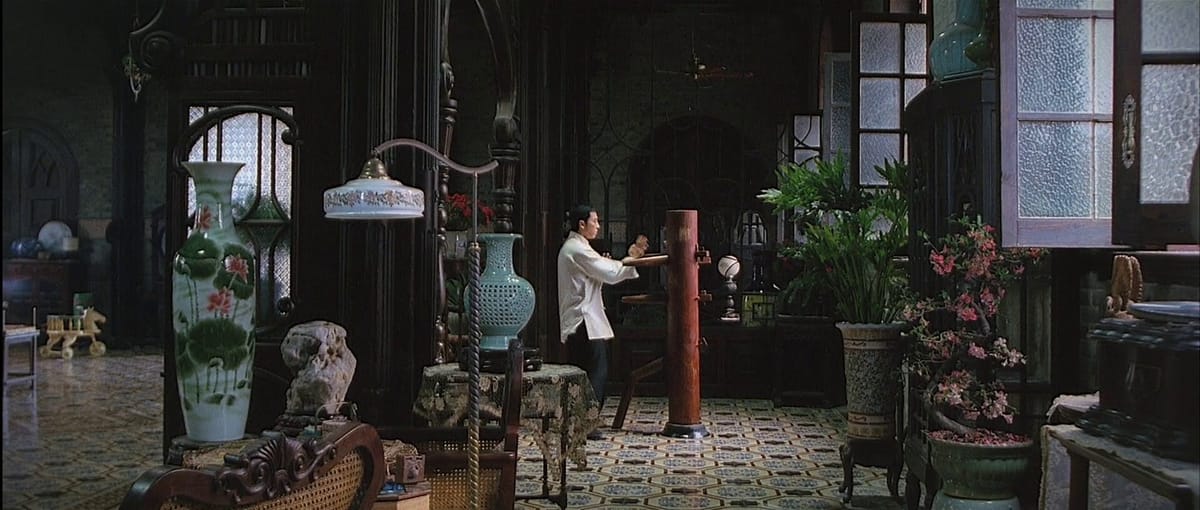Courteous goodwill in the time of chaos.

IP MAN is a film that understands martial arts not as spectacle, but as moral posture. Wilson Yip frames Wing Chun as something lived rather than performed — a discipline shaped by history, loss, dignity, and the impossible compromises of occupation. What makes the film resonate isn’t simply Donnie Yen’s immaculate precision, but the stillness he inhabits between strikes. His Ip Man is a man who carries peace in his body until the world leaves him no choice.
The first half of the film moves like a gentle rhythm — Foshan painted as a thriving martial arts hub, masters exchanging techniques with practised pride. Yip spends time letting us feel what is worth preserving: culture, community, small joys, and the confidence of a city that believes it will remain untouched. When the Japanese army arrives, that rhythm fractures. Suddenly, the movements become sharper, hungrier, desperate. Martial arts shifts from art to survival, from expression to resistance.
What distinguishes IP MAN from countless nationalistic action films is its refusal to treat violence as triumphant. Every punch is tied to the humiliation of occupation. Every victory leaves Ip Man more burdened, not more celebrated. Donnie Yen’s performance is a study of controlled grief — a man who absorbs injustice in silence until it curls into a single explosive decision. The famous dojo fight isn’t catharsis; it’s fury filtered through grace. It’s the moment where a man who never sought glory becomes a vessel for a city’s broken pride.
Even the film’s antagonists are framed through the lens of systems rather than caricature. The Japanese general isn’t monstrous so much as an architect of a brutal hierarchy, and Ip Man’s challenge becomes not simply defeating him but proving that dignity survives even under occupation’s shadow. The drama lands because Yip understands the stakes aren’t patriotic rhetoric but individual humanity — feeding families, protecting neighbours, deciding what kind of person you will be when the world tries to make you smaller.
IP MAN endures because it balances myth with restraint. It’s an action film built on humility. A biopic that trusts gesture over speech. A story about a man who refused to let cruelty dictate the meaning of his art. By the final frame, Wing Chun becomes something more than technique — it becomes defiance, memory, and moral clarity in a world that’s forgotten all three.




